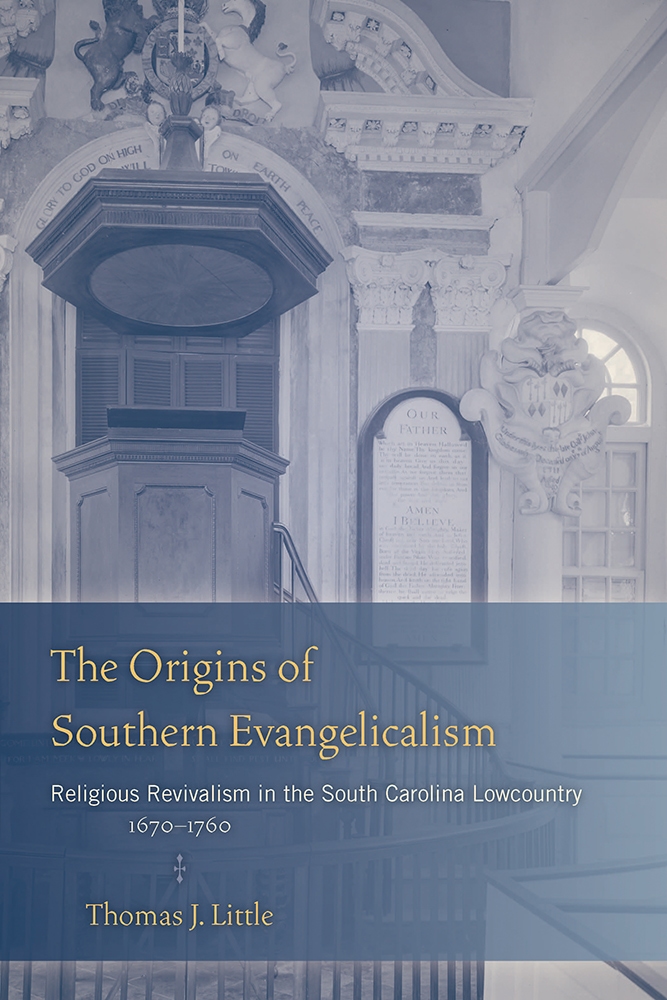Black History Month Sale: 40% off all books, plus FREE SHIPPING on all U.S. orders over $50 | Use code JBHM26

Size: 6 x 9
Pages: 296
Illustrations:
Thomas J. Little
The inclusion of this book in the Open Carolina collection is made possible by the generous funding of
"The Origins of Southern Evangelicalism convincingly demonstrates that evangelicalism did gain a solid foothold in early South Carolina."—South Carolina Historical Magazine
"Carefully researched and well told."—Early American Literature
"Evangelical Christianity's emergence in the lower South is surprisingly understudied, but Thomas Little's The Origins of Southern Evangelicalism goes a long way toward rectifying that neglect. His richly documented story of southern revivalism's beginnings represents a major contribution to our understanding of early American religion."—Thomas S. Kidd, Baylor University, author of The Great Awakening: The Roots of Evangelical Christianity in Colonial America
"This deeply researched and clearly written book persuasively challenges the existing scholarship on the rise of evangelical Christianity in the colonial South. By shifting his focus away from Virginia, Little shows that a vibrant and lasting evangelical subculture developed much earlier than generally recognized, decades before the Revolution. As an impressive example of revisionist history, the book deserves wide readership."—John B. Boles, Rice University
"Little shows that evangelical revival and spirited dissent shaped the southern religious landscape long before the Great Awakening. His book opens an original and unexpected new chapter in early southern history."—Jon F. Sensbach, professor of history, University of Florida
"The Origins of Southern Evangelicalism breaks new historical ground in its exploration of religious activity during South Carolina's first century of settlement. The author confirms what many have long suspected: the population of the colony was far more religious than it is often portrayed. In readable prose, Thomas J. Little explains the often confusing religious terms and movements of the 17th and 18th centuries. It is a most welcome addition to my bookshelf."—Walter Edgar, University of South Carolina
Copyright 2026
Website By Morweb.org